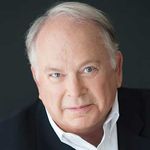
Richard Turen
It was a warm night in mid-July as 70 or so residents from surrounding neighborhoods walked ever so slowly along the Rue de Aude in Paris' 14th arrondissement.
No one stopped to stare. No one wondered why. They just nodded an occasional greeting. Those who passed on the busy street and those seated in the early evening at the outdoor cafes were not puzzled by the slow brigade. They knew why their pace was cautious, their steps deliberate. They knew where they were headed.
No one murmured that the slow walkers were "revolutionaries," but I think one could argue that they were. They were all coming from different directions, and they were all headed to the same place, a simple loft space where many chairs had been set up with a few long tables on a typically quaint side street.
They walked slowly for a reason: couples held a substantial wedge of cheese or wheels of cheese on plates. They did not wish to drop their precious cargo.
Each cheese selection came with a personal story, and that is why they were meeting. They are believers in the goals of Patrick Bernard, a journalist who lives in the 14th, who has taken on a rather daunting task: Bernard wants to start a grassroots movement to change the entire concept of city living.
He has loosely formed a "Republic of Super Neighbors" because he believes that living in a city like Paris, New York or Tokyo is breeding isolation and fear. Big city living, he believes, can be better. And his way of making it better is to urge his neighbors to stop thinking of themselves as big-city dwellers but rather as neighbors in a village that is just a part of something larger containing many local villages.
His idea is not, of course, particularly unusual. There are movements in several parts of the world to "neighborize" city living. The goals of the new age of urban planners is to decentralize everything and to help people to think of their home as a place whose scale they can readily identify with rather than a huge city landscape of millions of people.
Soon, the "cheese walkers" arrived at their destination. They greeted fellow "villagers," placed their cheese on the tables and waited for their turn to explain the meaning of the cheese they brought.
It might involve a childhood story or something from a war. It could be farm-related or a take on a restaurant discovery. Called the Talking Cheese, this is just one of 60 or 70 such unique gatherings of those living in the 14th.
Several times a year, long, long tables may be set up along the Rue des Thermopyles or the Rue Cremieux so that residents of the 14th can dine with one another, exchange stories and create that sense of place and purpose that every city-dweller seeks. Traffic is barred during these dinners, and shops are closed. Conviviality and new friendships come ahead of profits for just a few hours.
What is happening within the 14th is part of an interpretation of the urban design concept pioneered by the French-Colombian planner Carlos Moreno, called the 15 Minute City, in which virtually all of a resident's needs are in close proximity -- an urban village.
It might be wise to start cataloging private guides who can share this urban revolution with our most curious clients.